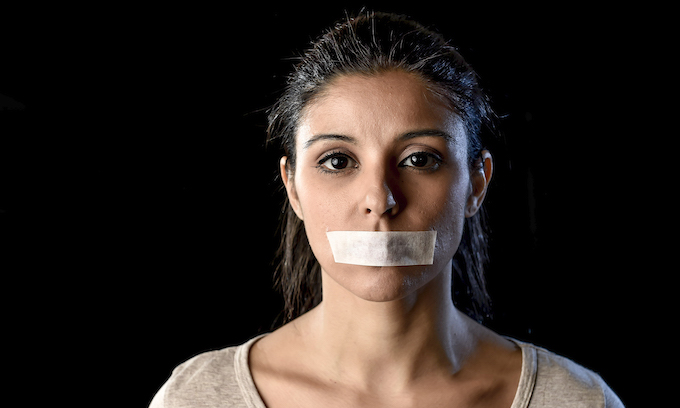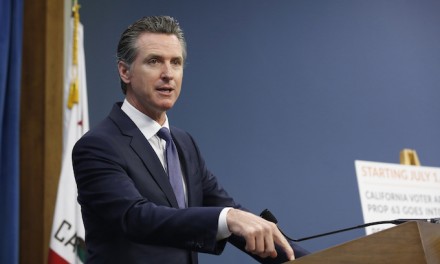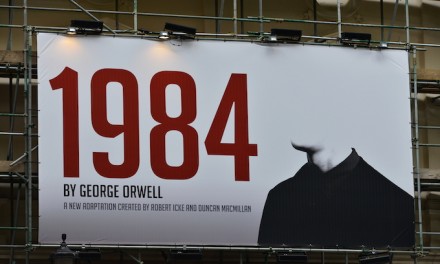Should a profane Snapchat rant by a frustrated central Pennsylvania high school cheerleader become the catalyst for expanding the law to allow school districts to punish students for controversial comments they post on social media while off school grounds?
That might be an iffy proposition, judging from the give and take during the U.S. Supreme Court’s two-hour hearing Wednesday on the case of Mahoney Area School District versus Brandi Levy.
Several justices seemed sympathetic to Levy, who was suspended from the cheerleading squad over her Snapchat post. There also seemed to be some skepticism regarding expanding school authority over off-campus student speech, although the justices peppered attorneys for both sides with questions pretty evenly.
District officials, who have lost this battle repeatedly in the lower courts, are urging the nation’s highest court to expand on 51-year-old case law, the so-called Tinker ruling, that permits school officials to discipline students for “disruptive” speech uttered on campus that significantly disrupts educational operations.
They want the Tinker ruling to be stretched to allow school officials to punish speech they deem disruptive to school operations that students post on Snapchat, Facebook and other social media platforms while the students are not on school property.
The dispute hinges on the year-long suspension from the cheerleading team that Levy received as punishment for a fleeting expletive-laced Snapchat post she published in 2017 while out of school on a weekend. She was 14 years old at the time and had failed to make the varsity cheerleading squad for her Schuylkill County high school.
Her post stated, “”(Expletive) school, (expletive) softball, (expletive) cheer, (expletive) everything.”
Lisa S. Blatt, the attorney for the school district, said extending Tinker to cover out-of-school student speech is necessary because “off-campus speech, particularly on social media, can be disruptive.”
Such an extension should only allow disciplinary action for such speech that causes a “material and substantial disruption” of school operations and or involves harassment such as bullying, Blatt said. She said Tinker already bars districts from punishing students for protected political and religious speech and that safeguard would remain in place.
Several justices asked why Levy’s Snapchat prompted such a reaction from the district.
“She used unattractive swear words off campus. Did that cause a material and substantial disruption? I don’t see much evidence it did,” Justice Stephen G. Breyer said. “If swearing off campus did, my goodness, schools in this country would do nothing but punishing.”
Blatt replied that Levy’s cheerleading coach “reasonably forecasted that someone who berates with a profane gesture and words is not somebody you’d want at the bottom of the pyramid.”
“She (was) a cheerleader and it’s an extracurricular program where she consented to an extra degree of regulation because she’s a school ambassador,” Blatt added.
Justice Brett M. Kavanaugh questioned the reasonableness of Levy’s punishment.
“As a judge and maybe a coach and a parent, too, it seems like maybe (her suspension was) a bit of an over-reaction by the coach,” Kavanaugh said. “She’s competitive. She cares. She blew off steam like millions of kids have done when they’re disappointed about being cut from their high school team.”
“So, maybe what bothers me when I read all this is that it didn’t seem the punishment was tailored to the offense,” he said.
Blatt argued that restricting the bounds of Tinker to school property simply doesn’t take the reality of the internet age into account.
“The internet is ubiquitous. It doesn’t have a geography,” she said. “Students shouldn’t be able to place their speech off limits simply by stepping off campus.”
Attorney David Cole of the American Civil Liberties Union, who represents Levy, countered that school districts shouldn’t be given “24/7” authority to punish student speech.
Such an expansion “would require students to effectively carry the schoolhouse on their backs in terms of speech rights everywhere they go,” Cole said. “It would also directly interfere with parents’ fundamental rights to raise their children.”
“Levy “was punished for merely expressing frustration with a four-letter word to her friends outside of school on a weekend,” he added. “Her message may seem trivial, but for young people the ability to voice their emotions without fear of school censorship may be the most important freedom of all.”
Justice Elena Kagan focused on how the internet has blurred the on-campus, off-campus boundary.
“It might be that student speech that occurs outside of school is…going to cause fundamental problems, disruption of the school’s learning environment,” she said. “I guess the question is why we shouldn’t acknowledge that and allow a school to deal with it?”
Cole argued that adoption of the school district’s position “would teach students they can never speak candidly with their friends without worrying that a school official will deem their views potentially disruptive and suspend them or otherwise punish them. That is the wrong lesson to teach.”
©2021 Advance Local Media LLC. Visit pennlive.com. Distributed by Tribune Content Agency, LLC.
—-
This content is published through a licensing agreement with Acquire Media using its NewsEdge technology.



















Amendment 1
Congress shall make no law respecting an establishment of religion, or prohibiting the free exercise thereof; or abridging the freedom of speech, or of the press; or the right of the people peaceably to assemble, and to petition the Government for a redress of grievances.
BEWARE:
The “Socialist Democrat Party State” political officers, Gestapo, Woke and Cancel Culture are just getting started.
You will obey, be loyal and support the “Socialist Democrat Party State” or you will be classified as
“Enemies of the State”.
24 Aug. 2020 – Monday on MSNBC’s “Live,” House Speaker Nancy Pelosi (D-CA)
referred to President Donald Trump and his Republican allies as “domestic enemies” and “enemies of the State”.
IF its TIED TO THE govt, no it shouldn’t in anyway be limiting free speech.. AND THE PUBLIC schools are tied to the govt, with a ball and chain.
The title of the article says it all, absolutely the government should NOT BE ABLE TO TELL US WHAT WE CAN AND CANNOT SAY. Speech is protected by the 1St amendment, if these libtards don’t like it well they are free to find a country better suited to their liking.
Scruffy I have to agree with what you said there! You are very much right about it.
“Should An Agency Of Government Control An Individual’s Online Speech?”
Quite simply, NO!
No government agency. And once again we’re talking specifically about the public school system.
A system that for decades has been dumbing down it’s curriculum to the point that many graduates do not know how to write a legible sentence (crappy handwriting, no grasp of cursive, atrocious spelling and no grasp of when to use caps and lower case letters, properly or creatively).
Who have little to no grasp of even the most basic math practices (UN-believable the number of times a young cashier has gotten flummoxed trying to countdown change back to me–once to the point a manager was called, and even HE couldn’t do it!).
A system that for generations now has been exchanging basic education for indoctrination of anti-American, anti-Constitutional ideologies.
And they think we want a system that’s become so broken and corrupt to be a watchdog over their students, OUR children, 24/7, with threats to the students over what THAT system believes what is right and what is wrong?
Again, quite simply, NO!
In full disclosure, I have never been a parent, but I am a taxpayer. And I have always felt that all children are our hope for a better future. And the public school system has seriously dropped the ball. And don’t get me started on our miserable higher education institutions.
That is something i often had heart ache with in the military, how OUR first amendment rights got curtailed… BUT IT WAS something i knew when i signed up, and agreed to.. BUT these days, i feel even THAT shouldn’t be in law.
UR Absolutely Correct Scruffy. Thanx!
The last thing I want is some government agency or public schools playing the thought police, when it comes to free speech. That being said, if my fourteen year old daughter used foul language like she did, she would be disciplined. Levy’s parents backing her foul language tells me one thing, Levy and her parents are liberals.
“liberal”?
is that the new code for “USELESS TRASH”?
You can’t know what her parents think about her use of language but I also would fight the schools attempt to seize control of anyone’s speech beyond the physical boundaries of school property. If her language was criminal then Law enforcement has jurisdiction on the content of her speech.
With today’s societal persecution, the last thing I would permit is more control from ANY government entity.
Freedoms are as precious to liberal as they are to conservative individuals.
Regardless of our personal opinions, we all have a duty to defend the rights of all.
ESPECIALLY when they seem to use it as a HAMMER to silence all disscent..
Why is this question even being asked? That question was answered on December 15, 1791 when the first 10 amendments were ratified.
Ahh, but no ‘amendment is set in stone’, just ask biden.
Biden made the comment: “No rights are absolute!”
I believe he ‘mis-spoke….’
NO POLITICIAN has any power above those powers and authorities that are SPECIFICALLY ENUMERATED AND spelled out and LIMITED by the U.S. CONSTITUTION.
ergo; there is no government employee with ABSOLUTE POWER OVER ANYTHING… much lees WE, THE PEOPLE.
Perhaps he should learn to read and COMPREHEND the details….?
Notwithstanding that terse little sentence called Article One, Section One; each and every one of the last several presidents, of both political parties, has blatantly violated this provision and issued “Executive Orders.”
Since “ALL LEGISLATIVE powers shall be vested in a Congress of the United States” then ZERO authority for the Executive Branch to make “rules and regulations” and the Judicial Branch has ZERO authority to “legislate from the bench.”
Just saying…what the Constitution says.
LIKE ALL liberals, he cares NOT what the constitution says.. ESPECIALLY those pesky limitations wrote in those ‘enumerated powers”…
Regarding the “Tinker ruling”, expanding is not the word I would use. Redefining would be closer. Other than the question(s) regarding what is disruptive and what is bullying, the question of who makes that determination is still not fully resolved.
“Such an extension should only allow disciplinary action for such speech that causes a “material and substantial disruption” of school operations and or involves harassment such as bullying, Blatt said”. The school officials have already shown that anything they dislike is “disruptive” in their narrow opinion. They are hardly being objective, and in fact have shown themselves to be incapable of objective thought or action.
AND they show their abject bias, in that ONLY ONE SPECTRUM of speech (PRO conservative) IS being labeled disruptive..
Like most of the U.S. Constitution, Progressive (Liberal) icons of media, entertainment, academia, and now commerce, have turned it into a joke.
The idea that Free Speech exists in this country is just a fading memory. We need not worry about the likes of China, Russia, or an Islamic Republic dominating our country, because thanks to our own ignorance we allowing our government to steal our rights and applauding their efforts.
More and more, i would love for adnd like magic to exist, so EVERYONE IN office anywhere in the nation, who swears an oath to uphold our laws and consititution, WHO THEN TURNS AROUND AND takes a big steaming dump on that oath, would turn into stone….
I remember Kruschev saying “your grandchildren will live under communism.” That statement has now been proven true.
TOO bad, as a nation, we didn’t LISTEN TO HIM.
I believe that there is a very easy test that can be performed to decide this case — would anyone in the school district have objected had the student tweeted praise of their actions? The obvious answer is of course not. Had the student praised the same people and organizations she disparaged, she would have been lauded, not suspended. That does not meet the requirement of equal treatment before the law. There was no violation of Tinker.
Had she tweeted “Death to cops, ACAB, or defund the police” she’d not only have been praised for it, but likely gotten everyone at school to RETWEET IT…
NO—and neither should Social Media platforms.
My only problem with all of it is that she agreed to abide by a certain set of rules, and in this case that set of rules includes this, so I don’t have a real problem with her being suspended from the cheer leading team. She agreed to the rules, knew the rules, therefore she should have followed the rules. Cuss the school out in frustration fine, but don’t do it on-line where everyone will see it and know it was you. I am tired of people that believe the rules only apply others and they should be allowed to do what ever they feel like. Her parents should have been the first ones to punish her for her actions, but I bet they don’t believe in punishment. This is how you get spoiled brats!
NO School’s rules, should dictate to you, what you can or cannot do, WHEN NOT AT SCHOOL though.
This is just one more example of liberal over reach. What a student says while off campus, and not performing any activity representing the school, is of no concern to the school system. If it states that in the school rules then that should be removed because it violates a students freedom of speech. Hopefully the SCOTUS rules in the young girls favor and inform the school system that they need to conform to our constitution and bill of rights when it comes to restrictions they try to impose on a student.
Pity i have LITTLE hope in our scotus, RULING in her favor
usafvet, do you care more about the rules that a government school makes up or the Constitution of the United States? If the Supreme Court rules that this profane girl loses her right to freedom of speech you will lose your rights along with her.
Popular speech doesn’t need protection. Unpopular disagreeable speech does.
You might think of this in terms of political parties. Government approves Democrat speech and censors Republican speech. If it was the other way around it would still be wrong. Our Constitution gave ALL of us freedom of speech whether everyone agrees with it or not. Government does not and should not have the power to censor any of us.
Now, if it was a private school the argument might well be very different.
Even if it WAS a private school, they STILL SHOULDN’T be able to dictate what you can and can’t say, OUTSIDE OF SCHOOL hours and OFF of school property!
well….
The schools are ‘government’.
What if a government employee said ‘mean things’ about the government while on vacation in Belize?
CAN they be ‘held accountable’ as well?
in other words…
DO WE THE PEOPLE get to examine every comment made, on AND OFF the job premises?
john kerry, a couple of clintons, a pelosi or two…..
Maybe we should examine every tweet Kerry ,Clinton’s and Pelosi has sent. But we need to add every tweet and email the squad in Congress sent out.
The ACTIONS of this group should have resulted in LONG prison terms. Don’t sweat their speech alone in their cases.
The actions they’ve done ON THE JOB, should land them all in prison for life. LET ALONE what they’ve done off the job….
If the computer was owned by the school or the site she was posting on belonged to the school, then I could see the schools point. If she was making threats against the school, a teacher, or a fellow student, I could see police involvement. But comments on an open public website, from her personal computer, of whatever nature, that were not breaking any current laws, or threatening anyone with harm, I don’t see that the school has a right to interfere with her Right of free speech. If someone was to point out her comments to her parents, that’s fine. But that’s a family matter, not a school matter. If her parents allow her to express herself, using whatever language she sees fit to use, that is her parents prerogative, it is NOT the schools business.
That’s why it is called FREE SPEECH, isn’t it?
I whole heartedly believe this young lady is entitled to freedom 0f speech and the courts should stand behind that principle. BUT! Perhaps she could have vented more wisely. Maybe the expletives could have been traded with more appropriate words, especially when participating in electronic messaging. Those words will always be out there to come back and kick her in the backside. A prospective school or employer could use these words to break a tie in an application decision. The language would have been better off used in a private conversation among friends or on a phone call. I can feel for her need for these words(from experience), though she ought to be wiser about when and how to use them.
Immature / unwise speech is still speech that is protected by the amendment.
The First Amendment does not contain a minimum-age requirement in order to exercise it.
I do not like some of the things some people say BUT I willingly tolerate them so FREEDOM ENDURES. This same Right is the only reason I can tell you my opinion here. Likewise, without this Right, YOU would be forced to just shut up; permanently.
As the phrase goes. I MAY not like what you say, but i will defend your right to say it!
This is TOO simple! Either we have freedom of speech or we don’t!
Thinking back, I remember Obama, you know the former president now serving a third term controlling the “puppet” and described himself as a constitutional scholar, stated that the Constitution is fundamentally flawed because it tells the government what it cannot do instead of what it can do. Democrats really hate that document.
I honestly think they have hated it, SINCE THE LATE 1800s!!
It is “flawed” only from the perspective of a sociopathic tyrant.
Are their any judges left out there who actually understand the simple words, “SHALL MAKE NO LAW”??
These days, it certainly doesn’t seem like it.